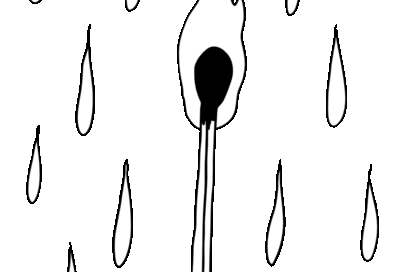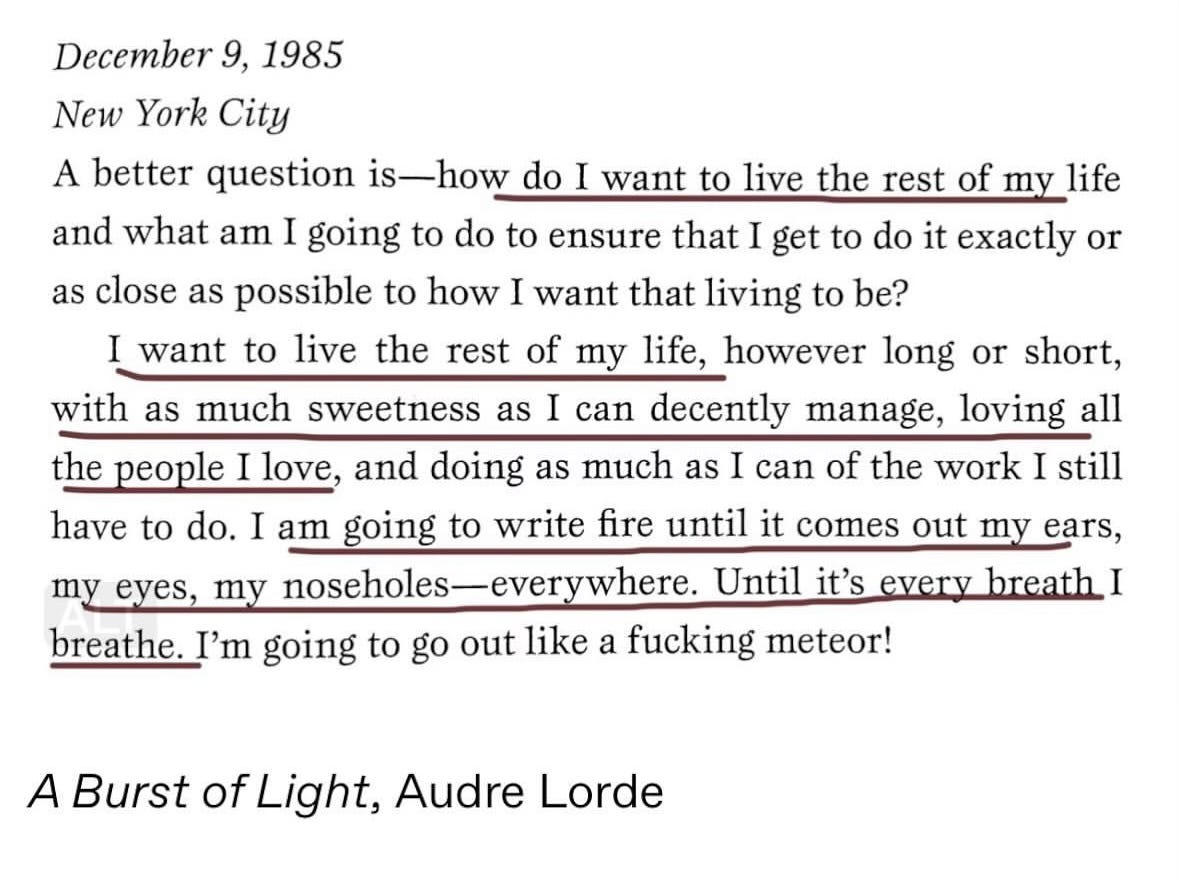Every other Monday, I send subscribers and gift recipients of immigrant mental health and storytelling newsletter Foreign Bodies stories I recently inhaled and adored. This is also a chance to do some housekeeping and give shout-outs and all that jazz.
Like a fucking meteor
It matters that Aaron Bushnell was a white American man who served for his nation and loved it enough to speak on its flaws knowing that the world as it exists, if he’d left it untouched and went on unbothered like so many do with their heads and hearts closed, with their notes on neutrality and their copacetic professions of peace — in a world like this, with the systems he ultimately grew to despise, had Aaron kept his head down and his ire suppressed, he would have likely benefited in some way or another. But Aaron had a heart and a mind broke open, a love for justice so big it had nowhere left to go but up in flames.
The morning Aaron’s video was released, I walked into my neighborhood coffeeshop and noticed my barista heartsick, more glum than usual, and that’s saying something of the oft-sullen sweetheart.
“I can’t stop thinking about him,” she tells me, and I don’t have to ask who.
I get texts from others aghast at the news and read discourse after discourse from white readers about the ethics of sharing the video in the first place, to which I instinctively scoff then admit to my lonesome and to my therapist how I’ll never be able to stomach watching it myself; it feels too much like something I’d do, something I may have done in a past life. The screen grab was enough, the audio a necessary haunting.
But it matters that Aaron was a white American man who served for his nation and filmed it all, making his motives clear from start to finish. It matters that he was composed in his speech, that he wore the uniform, that he was active duty, and again, that he was young and male and white. It matters because I don’t remember headlines in Western media like this, community attention like this, global recognition like this, discourse quite like this after the protester in Atlanta who self-immolated in front of the Israeli consulate back in December, a woman who remains in critical condition, whose name I’m not sure we’ll ever know.
It matters and I believe Aaron knew it would. The more I learn about what he’s left behind even after his final act of radical love — the savings he left to the Palestinian Children’s Relief Fund, the ask for his ashes to be scattered in a free Palestine should its natives accept his remains — the more I can’t stop thinking about the what now for us.
Self-immolation is “the rawest testament to the absence of effective courses of action,” Erik Baker writes for n+1. “When war consists primarily of unelected men in undisclosed locations pouring fire on the heads of people we will never know on the other side of the world, there is very little that ordinary people can do to arrest its progress. But we still have our bodies, and it is in the nature of fire to refuse containment.”
The act “illuminates our powerlessness in negative space, but it also affirms the irreducible core of our freedom, that small flame of agency that no repression can extinguish.” The purpose is not to encourage us all to light ourselves on fire but “to scream to the world that you could find no alternative, and in that respect it is a challenge to the rest of us to prove with our own freedom that there are other ways to meaningfully resist a society whose cruelty has become intolerable.”
If his purpose was to challenge the rest of us still here to prove with our own freedom and privilege that there are other ways to meaningfully resist an intolerably cruel society, what does that look like? We prove it through everything, don’t we? The protests, the discussions, the writings, the readings, the organizing, our actions and inactions at the polls and at dining room tables and at career fairs and yes, even at happy hour. We prove it when deciding where we put our money, where we drink our coffee, what we give up. We prove it by accepting discomfort and inconvenience for the greater good, by being honest about who we choose to spend our lives with and why. We prove it in the ways we take care of ourselves so we can resist for everyone else.
“I want to live the rest of my life, however long or short, with as much sweetness…doing as much as I can of the work I still have to do,” the late great Audre Lorde once wrote. “I am going to write fire until it comes out my ears, my eyes, my noseholes — everywhere. Until it’s every breath I breathe. I’m going to go out like a fucking meteor!” Like a fucking meteor.
A show of solidarity
One piece of evidence to remind us we’re not alone, that our struggles for liberation are undeniably intertwined
On Sunday, a group of Black Atlantans, many current or former HBCU students, led a silent walkout during Rev. Raphael Warnock’s service at Ebenezer Baptist Church in protest of the Georgia senator’s failure to call for an immediate and permanent ceasefire in Gaza.
Resource(s) of the week
Something helpful and interesting and cool (*storytelling opportunity)
Dream Resource Center: a project from the University of California-Los Angeles dedicated to promoting opportunities for immigrant and undocumented youth through fellowships, storytelling, tech and more
*Acacia Magazine, a new magazine of politics and culture for the American Muslim left, is seeking vol. 2 pitches on the 2024 Presidential election, genocide in Palestine and humanitarian catastrophes in Sudan and the Congo. Editors are also interested in poetry, short stories and timely reviews. Please send pitches for the print edition and web, as well as any questions about submission guidelines to submissions@acaciamag.com.
*Ploughshares Emerging Writer’s Contest is officially open. Those who have yet to publish or self-publish a book are encouraged to send fiction, nonfiction and poetry for the chance to win publication in the esteemed Emerson College magazine plus $2,000. Deadline to submit: Noon EST on May 15. More details at pshares.org.
What I’ve been reading lately
Stories and essays I’m loving, with an emphasis on decolonized readings for Palestine
A World Without Palestinians (Devin Atallah and Sarah Ihmoud, Massachusetts Review): “Our work traverses the intergenerational lovescape of infinite grief and the growth of Gaza in the vastness of our hearts; it ensures that our people are forever protected and nurtured in the womb of the land—tunneling beneath, beyond the reach and away from the gaze of the transnational colonial cult of death… Palestinians teach a fundamental decolonial truth, which the current world is still unable to comprehend—that Gaza has liberated us all.” A reflection on Palestine and resistance against colonialism from scholars Devin Atallah and Sarah Ihmoud. Read here.
Keep reading with a 7-day free trial
Subscribe to Foreign Bodies to keep reading this post and get 7 days of free access to the full post archives.







